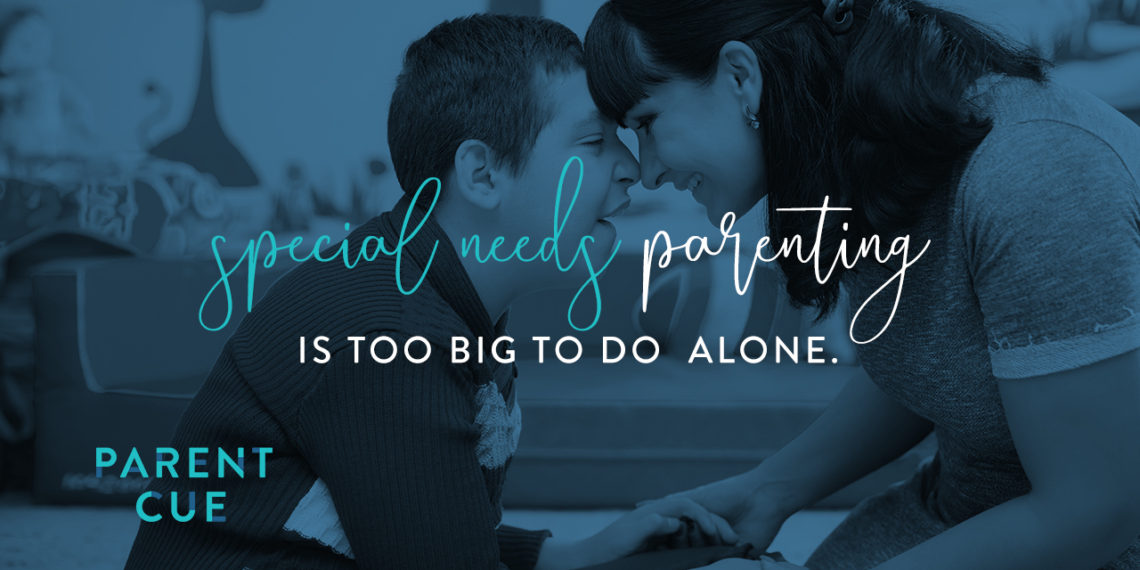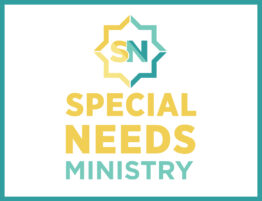
“Special-needs children are a blessing!”
“God only gives special kids to special parents.”
“Just let me know if you need anything.”
Families affected by disability are in chronic need of supportive community to do life together. But friends and even family—all with the best of intentions—can sometimes express comments that land more hurtful than helpful. Or they withdraw, intimidated, shushed into silence for fear of getting it wrong.
Because they don’t know what to say or do, intended blessings can result in inadvertent bruising. It seems there’s no way to win in supporting someone struggling under the weight of a unique responsibility.
Or is there?
Divine Dependence
At the garden of Gethsemane, Jesus who carried an unprecedented burden struggled intensely as He prepared for His final hours. Deeply distressed, he sought the support of His most trusted friends. Hapless, weary and tongue-tied, they, too, struggled to respond appropriately.
But what could they have said or done? There was no opting out of Jesus’ mission, no mitigating His suffering to come. No mortal words could have altered a God-ordained assignment. What could anyone have done or said to alleviate the burden of the Son of God, who had come to take away the sins of the world?
Even Jesus needed the emotional support of friends to sit with Him in His darkest hour. He also needed physical assistance when His human strength expired en route to the Cross. Human in every way, Jesus contended with misunderstanding, abandonment, loneliness, isolation, and exhaustion. The omnipotent and divine also experienced overwhelm and utter dependence on people. And we neither shame, guilt nor judge Him for it.
If Jesus, being in very nature God, humbly availed Himself to the support of others, how much more so should we?
Help me, Help You (A Better Way)
“I’m going to Target Thursday. Can I pick up stuff for you?”
“We can watch your kids this Saturday. Let’s get a date night for you guys.”
“I don’t know what to do but I want to. Help me help you.”
The etymology of compassion is “co-suffering,” to suffer with. As a family living with autism, ADHD, seizures and OCD, our friends may not be able to carry our unique challenges for us. But they can carry . . . us.
Supportive friends have demonstrated compassion for me, as they sat and suffered with me. They’ve offered up a listening ear, receiving my ravings with an absence of judgment or admonishment to be “more spiritual.” Rather than offer advice or even memory verses, mercifully, they let us do the talking. Wise friends come ready to hold an emotional barf bag for us. They know to let the heartsick fill it.
Rather than say, “Let me know if you need anything,” (I assure you, we won’t, even though we’re buried) they ambushed us with specific, practical offers of help: groceries, meals, gift cards, errands, and kidnappings for “mandatory” pedicures. Love insists and finds a way to express itself, according to the Love Languages and resources God has uniquely gifted each of us with.
Help me, Help You
A burden shared is a burden divided. We must be willing to offer, accept, and even ask for help, because special-needs parenting is too big to carry alone. Its lifelong squeeze leaves little room for martyrdom.
When our souls are overwhelmed with sorrow, stress, and anxiety, we must seek out safe places and lean on safe people. Though we risk disappointment, we must be humble and willing for our needs to be known. Vulnerability requires risk, humility, and utmost strength. No wonder Jesus was able to seek emotional and practical support. He, who carried a unique burden no one could understand, knew to lean on the compassion of well meaning, yet flawed friends.
Our Father has always known it is not good for us to be alone. He created us to be in community. He desires to dispatch help and comfort through others, to give others an opportunity to flex their compassion muscles.
Especially in this month of Autism Awareness/Acceptance April, who needs you to be a compassionate and helpful friend? Twenty percent of all US families live with disability. Everyone is bound to know someone. Helpful, practical tools are readily available, to help you.
When 75% percent of Jesus’ miracles in the New Testament were for the disabled community, we already know what Jesus would do. Compassion—suffering with—is what He has done, and desires His people to follow in His footsteps.

